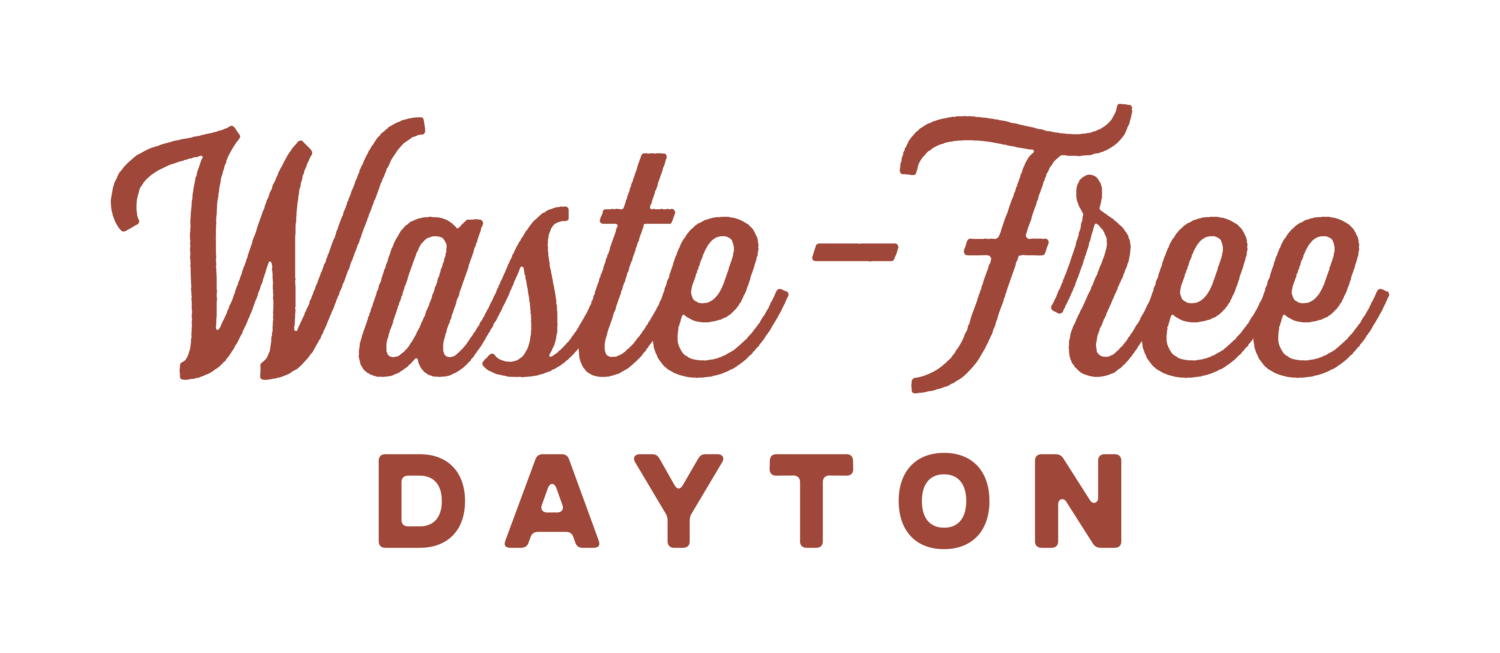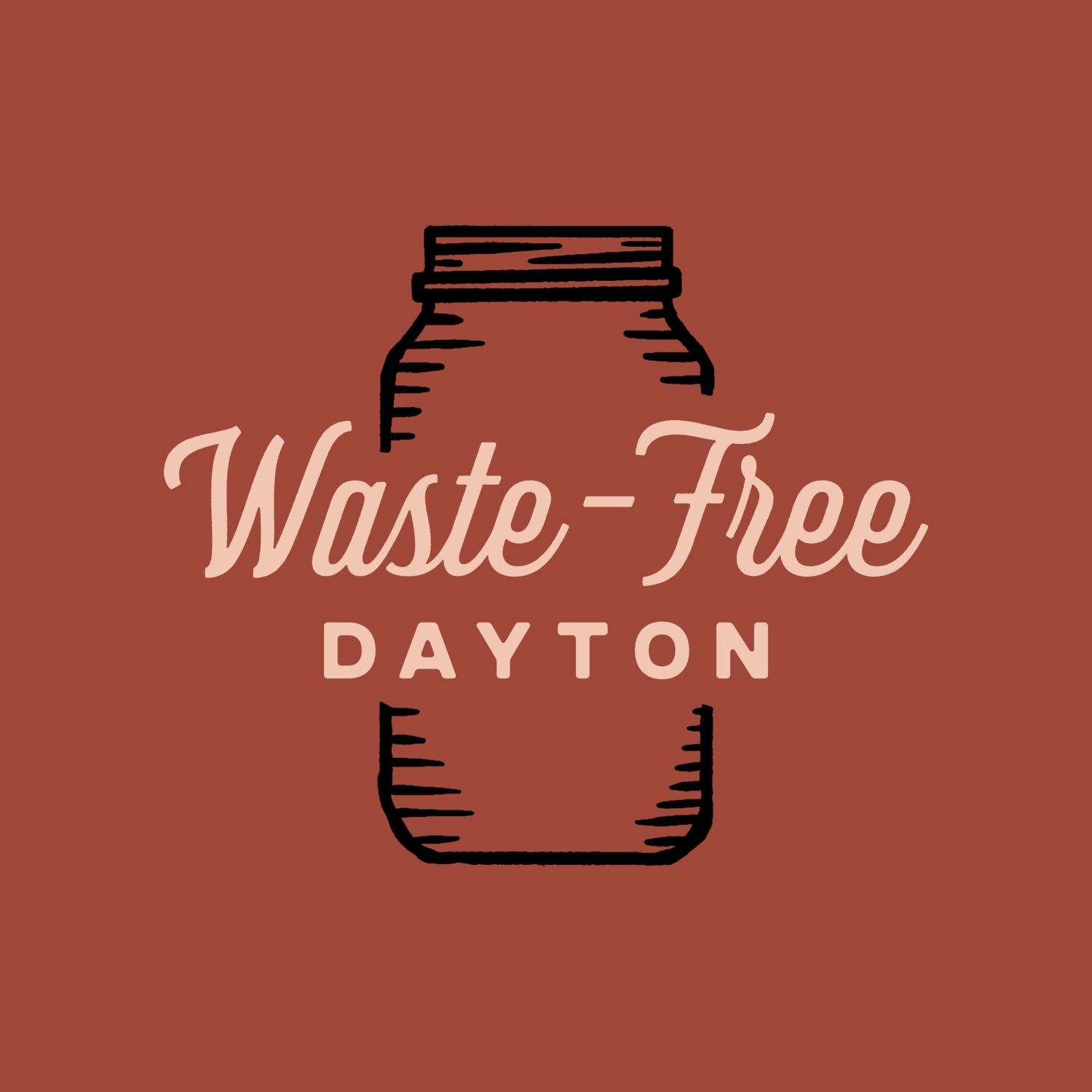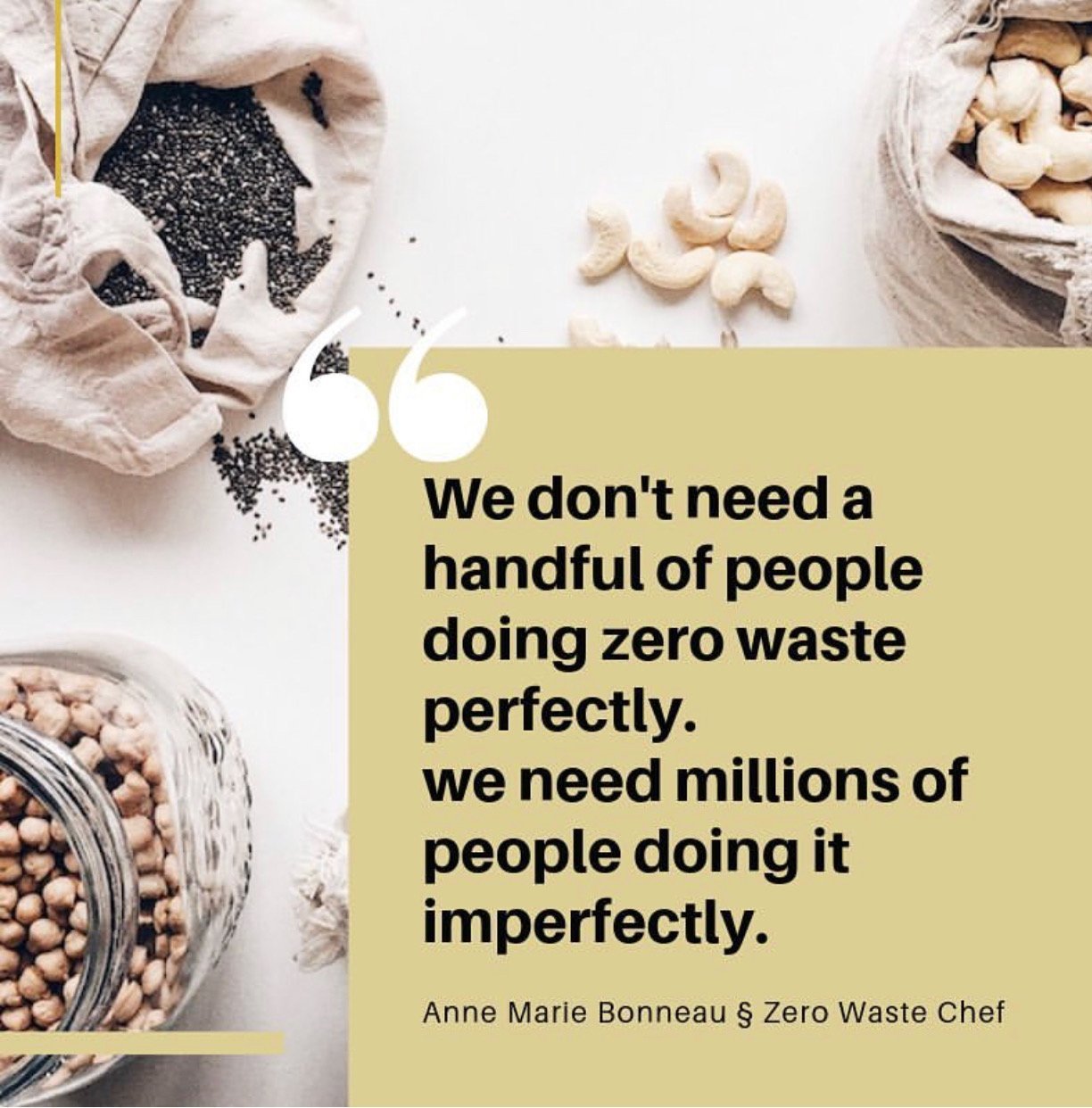Starting Your Waste-Free Journey
With three weeks of the new year behind us, hopefully progress is being made towards your waste-free goals for 2022. In our household, we set several goals to push us further along on our waste-free journey, such as doing more meal planning and doing more homemade staples like bread, and also improving our backyard composting. Since I became involved with Waste-Free Dayton last year, a few people have asked me for tips on changes they can make in their daily lives if they are just starting their journey. Basically, they are starting at zero, with little knowledge about living sustainably. My family and I are still fairly early in our journey, but we have been able to make some simple changes in our lives that I hope can help others who are just starting out.
1. Reusables
According to a Reuters study, 481.6 billion plastic bottles are used each year, which equates to over a billion bottles per day. I could go on and on about plastic and how terrible it is for our environment, and how a very small percentage of it is recycled, but I’ll save that for another post. What about disposable cups? 500 billion plastic cups and 16 billion disposable coffee cups are used each year (source: https://www.earthday.org/fact-sheet-how-much-disposable-plastic-we-use/). Make a commitment to carry a reusable water bottle and a resuable hot/cold cup with you wherever you go. Establish the habit and it will eventually become second nature.
You can take this to the next level by carrying reusable cutlery, straws, and containers with you. You might keep a first aid kit in your car. Think of a waste-free kit with various reusable items like a first aid kit for the planet.
Also in this Reusables category, I should include reusable grocery bags and produce bags. Unless you only do grocery pickup or deliveries, it makes sense to get a few reusable bags and keep them in your car (that’s what we do.)
2. Household & Personal Care Products
This is a high impact (frequent purchase) category so just a few small changes can make a big difference. In the last year, we have:
switched to shampoo and conditioner bars
started making our own hand soap using tablets and reusable bottles
started buying powder laundry detergent in cardboard boxes
started using toothpaste tabs
tested out several kinds of deodorant (creams, sticks in recyclable paper containers)
Grocery stores and chains are starting to carry more sustainable, eco-friendly products, but the Dayton-area also has several waste-free small businesses that you can support. We’ll share a list at the end of this post.
3. Cloth Napkins
This has been a surprisingly easy change for us. What used to be common only at our holiday gatherings is now an every meal thing. We bought our eclectic collection of cloth napkins at various thrift stores over the last year, but if you’re not up for the adventure of thrifting, you can invest in new napkins at a local waste-free vendor. We still have paper towels that we use occasionally (which we bought from from an online eco-friendly product company, so they are wrapped in paper and made from bamboo), but we keep a basket full of cloth napkins on our countertop for our daily use.
4. Use What You Have First
If you want to reduce waste, then make sure you use what you have first. This is a broad category, but for us, it means to be mindful of our purchases. Plan your next week’s meals around the food and ingredients you have on hand. If you buy bulk dish or hand soap or soap tablets to use, do you have plastic bottles that you previously purchased that can be reused? When you do go to the store, make a list ahead of time and stick to it. Use the oatmeal that you have at home before you buy that box of cereal.
Refuse to fall into the consumerism trap. Read more about avoiding the trap of consumerism from The Minimalist Vegan.
5. Recycling
It’s the last of the 5 R’s - Refuse, Reduce, Reuse, Repurpose, Recycle - so it should be your last resort option (well, before actually throwing something away, which is the last resort). Without making dramatic lifestyle changes, you are most likely going to have metal cans, milk cartons, glass containers, and paper and cardboard that can be recycled. Strive to become a recycling expert. Learn what is and what isn’t recyclable in your community by visiting your city’s website or the company that serves your community for recycling. Recently, WFD’s Executive Director (Natalie) and I, along with Kathleen from Pink Moon Goods, traveled to Cincinnati to tour Rumpke’s Material Recovery Facility. It was a very enlightening experience, and we shared some of the highlights in a series of posts on our Instagram. We still have questions about certain things, whether they can be recycled or not, but we found this tip sheet to be pretty helpful.
For items that can’t go in your weekly recycling but there is special recycling available, try to find a good spot in your house or garage to save those items for when you can take them to a special recycling place or event. Many grocery stores have plastic bag collection bins. Some businesses have used battery collection containers. There are even styrofoam recycling events in the area periodically (the next one in the Dayton area is April 23 at Rose Music Center in Huber Heights.)
Final thoughts
Striving for zero waste or even lower waste is a journey, and the change that you desire is not going to happen overnight. I also want to encourage you to try not to feel guilty if you slip up, or if you occasionally buy things that are in single-use plastic. Big structural changes need to take place in our economy, and companies need to take more responsibility to produce goods that are in eco-friendly packaging. All of the weight and responsibility should not be placed on us as consumers. So, with that said, perfection doesn’t have to be your goal. I’m reminded of a post that I saw by the Zero-Waste Chef about trying to be perfect.
I hope that you find these tips helpful and the advice encouraging. Feel free to comment if you would like to share how your waste-free journey is going, or if there are specific changes you have made that could be helpful to others.
Finally, these are just a few of the waste-free vendors in the Dayton area as of January 2021. We are planning to have a Resources page on our website eventually, where our goal would be to list every vendor in the area that sells waste-free and eco-friendly products.





